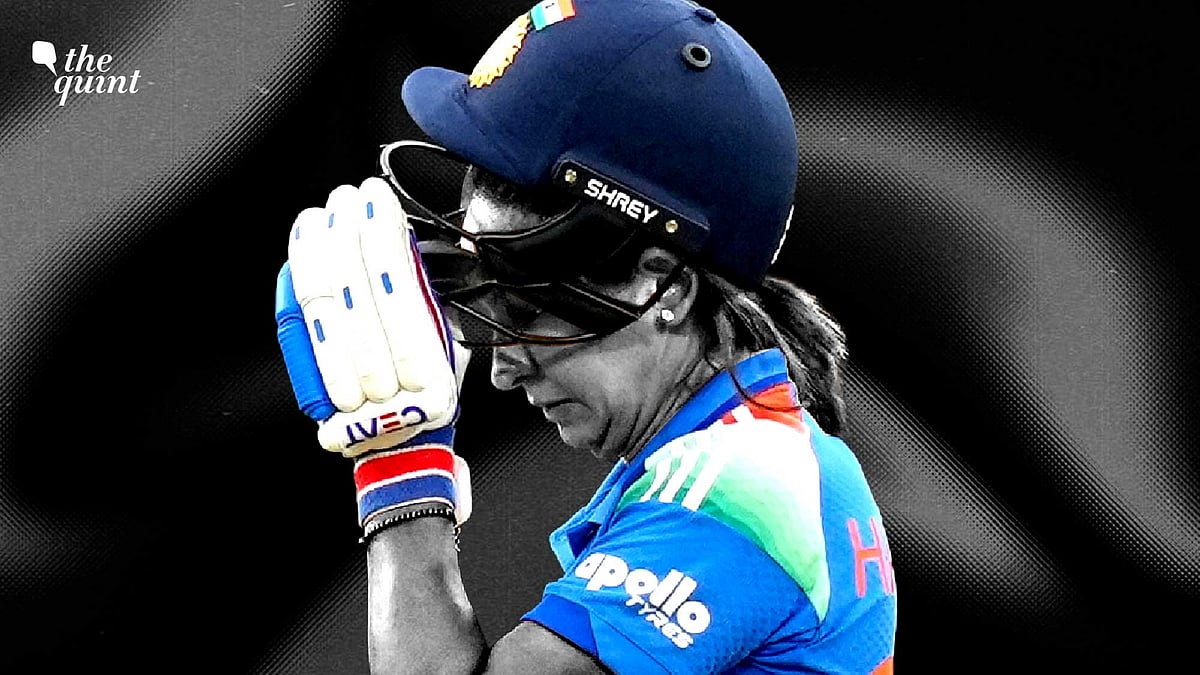
Harmanpreet Kaur and the Emotional Endurance of Captaincy
Leadership in sport is often romanticised but in reality, it can often be a lonely role, writes Dr Janki Deole.

advertisement
In today’s sporting world, mental toughness is no longer an abstract virtue, but rather a performance skill. This was reflected in the 2025 ICC Women's World Cup by the Indian team, led by captain Harmanpreet Kaur. Leading a team through the emotional and cultural weight of a home World Cup, Harmanpreet faced what many captains fear most: social media-fueled expectations and a fanbase hungry for history.
Every decision, every expression, and every comment was dissected in real time on social media. Rather than succumbing to the pressure, she transformed it, establishing a team culture based on transparency, empathy, and psychological resilience.
The Indian captain's journey in the tournament highlights the mental resilience needed to lead under public scrutiny, transforming early criticism into ultimate success. Ahead of the finals, Harmanpreet said “The final is not about pressure—it’s about belief. We’ve built this moment with sweat and patience.”
Keep Calm and Play On
In an interview before the tournament, Harmanpreet said “it was one of my dreams to lead my team in an ODI World Cup”.
Leading India in her first ODI World Cup as captain was both a dream and a trial for Harmanpreet. In another interview she said “It's all about enjoying this moment and not taking too much pressure".
Harmanpreet entered the world cup as a seasoned player and a symbol of empowerment. However, this role carries an invisible weight, especially among emerging stars like Jemimah Rodrigues, Shafali Verma and Richa Ghosh, where the captain's calm influences the team's tone. This also has an impact on the team's confidence and panic levels.
The early matches of India’s campaign faced criticism due to a series of narrow defeats, which raised concerns about team selection, tactics and Harmanpreet’s temperament.
By handling the criticism calmly, despite all the trolling and pressure, she inspired confidence and calm while keeping the team focused and united. She showed personal resilience and exemplified her effective captaincy. As a captain she understands that reactionary emotions may deplete leadership energy, making emotional restraint a key asset.
Still, she expressed her humanity by acknowledging her emotional nature: “I think I am a very emotional person, and I cry a lot,” she said candidly after the semi-finals. This expression of hers revealed authenticity, which may be one of the most underrated strengths of leadership today.
Harmanpreet emphasised recovery and “mental freshness” as her mantra through the knockout rounds. In an interview after the semi-finals she said, "recovery was something which we all paid more attention to because the fresher we are, mentally, for the final, the better it will be".
It is evident that she prioritises mental strength and stability from an interview which was taken after the Asia Cup finals:
Before the finals she also said “We’re not just training bodies—we’re training minds”.
These phrases capture a crucial leadership insight that success in high-stakes tournaments relies not just on technical skills but also on the ability to emotionally recover.
A Twin Battle
While Harmanpreet represented the calm of leadership, Jemimah Rodrigues became the voice of vulnerability. After her match winning score of 127 in the semi-finals against Australia, Jemimah broke down during the post-match interview and opened up about her mental strain: "Things back-to-back kept happening and I couldn't control anything. I have almost cried every day. I was not doing well mentally, going through a lot of anxiety.”
She also mentioned how Harmanpreet and Deepti stood by her side and supported her through it.
This was a reminder that mental strain does not discriminate by experience or confidence. Even the most composed athletes crumble, and even in their tears, they find resilience. The captain’s openness and support reflects the psychological safety of the team.
The tactical aspects of leadership in cricket, such as bowling changes and batting order are evident, while the emotional labour remains hidden. In the World Cup final against South Africa, Harmanpreet took a risk by introducing part-time spinner, Shafali Verma at a crucial moment in the game, a decision that proved successful. She later expressed confidence in her team’s self-belief despite the underlying doubts and fears that come with leadership.
In an interview with Star Sports, Harmanpreet highlighted the importance of a healthy, comfortable and supportive environment not just on the field, but also in the dressing room: “A good atmosphere within the dressing room, where everyone is comfortable and willing to share feelings with each other, betters the team's on-field performance”.
This highlights her empathetic and inclusive leadership style, demonstrating her value for open communication and team trust as key elements of strong performance.
Leadership in sport is often romanticised and characterised by celebratory moments like lift of the cup and team anthem. But in reality, leadership can often be a lonely role.
Captains face the dual pressures of being praised last and blamed first. Leaders must absorb emotions but rarely show them, project certainty even in doubt, and comfort others while managing their own fatigue. Harmanpreet Kaur’s World Cup journey was marked by her ability to balance her team’s beliefs and fears, demonstrating that true leadership is about supporting your team when it matters most.
(Dr Janki Deole is co-founder and director of Samiksha Sports and holds PhD Psychology & Sports Science (UK), MSc Psychology of Sport and Exercise (UK), and BSc Psychology, Sport & Performance (UK). This is an opinion piece and the views expressed above are the author’s own. The Quint neither endorses nor is responsible for the same.)
- Access to all paywalled content on site
- Ad-free experience across The Quint
- Early previews of our Special Projects
Published: undefined